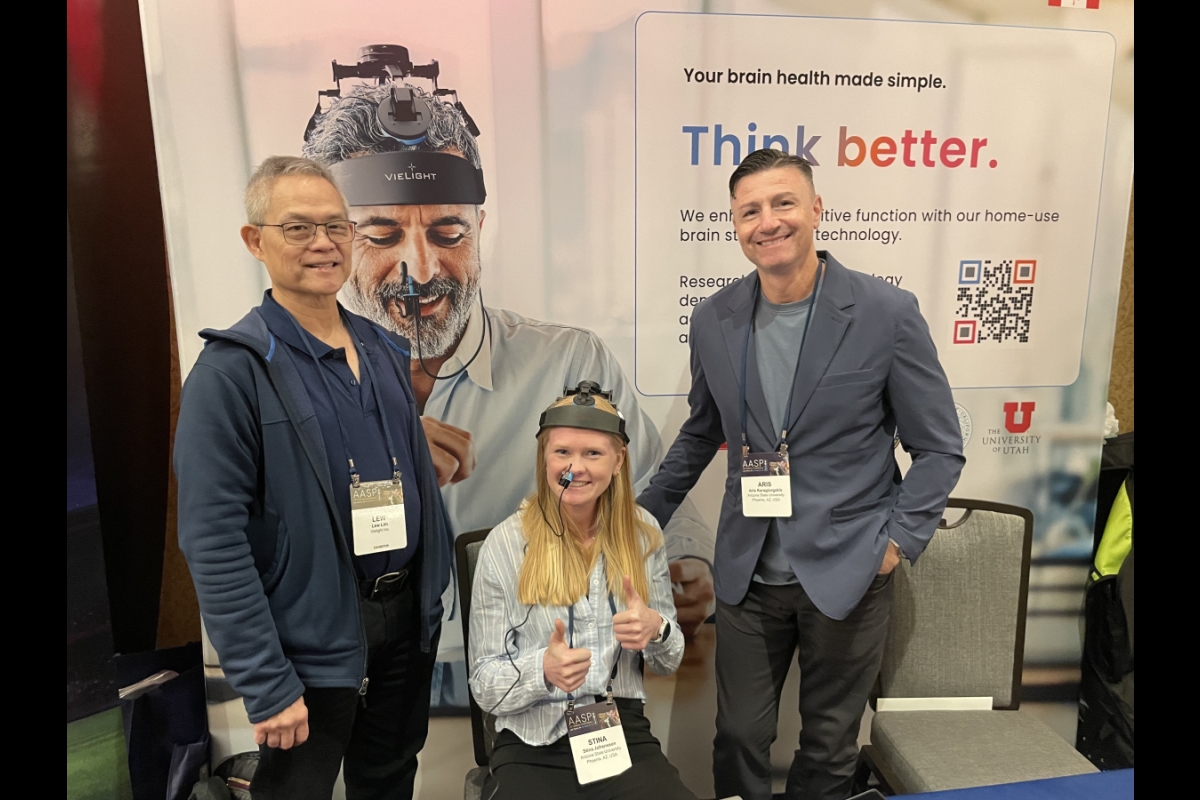Breaking ground in Sport Psychology: ASU students gain insight and inspiration at AASP Annual Conference

From left to right: Jake Land, Stina Johansson, Micaia Gerstner, Ashley Rodarte, Colin Brown and Professor Aris Karagiorgakis at AASP 39th Annual Conference in Las Vegas. Courtesy photo
Arizona State University’s new Master of Science in Psychology with a concentration in Sport Psychology, offered through the New College of Interdisciplinary Arts and Sciences, is quickly gaining recognition. Under the leadership of Aris Karagiorgakis, Assistant Teaching Professor of Social & Behavioral Sciences, the program's inaugural cohort is already making strides. This October, Professor Karagiorgakis and five graduate student s attended the39th Annual Association for Applied Sport Psychology (AASP) Conference in Las Vegas, the premier global event for professionals in the field.
The AASP Conference: a world-class learning opportunity
The AASP conference is a premier event in sport psychology, drawing practitioners, researchers, and academics from over 30 countries. This year’s event featured more than 100 workshops, lectures, panels, and symposia, showcasing the latest techniques and research. Topics ranged from mental performance coaching for elite athletes to applying sport psychology principles in business settings.
For ASU students Micaia Gerstner, Jake Land, Ashley Rodarte, Colin Brown, and Stina Johansson, the conference was an immersive professional experience. Professor Karagiorgakis, who secured grant funding to attend, emphasized the conference’s importance:
“This conference gave our students the chance to network with professionals and academics, build meaningful relationships, and deepen their understanding of the field. These experiences cannot be replicated in a classroom.”
Student perspectives: networking, learning, and growth
Each student highlighted unique aspects of their experience:
Jake Land described the conference as “drinking from a fire hose” due to the sheer volume of information. Networking with welcoming professionals provided valuable insights into career paths in consulting, business, and academia.
Micaia Gerstner appreciated the chance to connect with thought leaders. “Hearing their journeys reassured us that there’s no single path to success in this field,” she said.
Ashley Rodarte gained clarity on pursuing the Certified Mental Performance Consultant (CMPC) credential. “The conference solidified my interest in this certification, which aligns with many of our career goals,” she noted.
Colin Brown was inspired by sessions showing how sport psychology applies beyond athletics, particularly in corporate settings like sales teams.
Stina Johansson found the lectures invaluable, offering deep dives into specialized topics not yet covered in their coursework.
Expanding career horizons
The conference highlighted the versatility of sport psychology, showcasing its relevance not just to athletes but also to professionals in business and tactical settings. For example, keynote speakers discussed how performance psychology aids corporate team dynamics and leadership. One particularly intriguing session demonstrated a neurofeedback device designed to improve cognitive function and memory—a tool with potential applications for athletes and others.
The conference also featured innovative research. Ashley Rodarte noted a poster session on gratitude and injury recovery:
“Athletes who kept gratitude journals recovered faster than those who didn’t. It showed how mental health practices can directly impact physical outcomes.”
Professor Karagiorgakis views the conference as a stepping stone for ASU’s program:
“Attending this event reinforces our program’s commitment to providing students with cutting-edge knowledge and opportunities. It also raises visibility for ASU within the professional sport psychology community.”
Students shared their insights with faculty upon returning, offering suggestions to enhance the program’s alignment with CMPC requirements and broader career goals. Their input demonstrates ASU’s dedication to evolving its curriculum to meet students’ needs.
ASU’s Master of Science in Psychology with a concentration in Sport Psychology blends psychology, kinesiology, and counseling to explore how mental factors influence performance and well-being. Professor Karagiorgakis summarized the program’s dual focus:
“We provide students with the foundation for two primary roles: mental performance coaching and mental health support. This interdisciplinary approach equips graduates to enhance performance while maintaining athletes’ mental well-being.”
The inaugural cohort’s participation in the AASP conference exemplifies the program’s potential to shape future leaders in sport psychology. Through hands-on learning and professional engagement, ASU is paving the way for its students to excel in this dynamic and impactful field.




